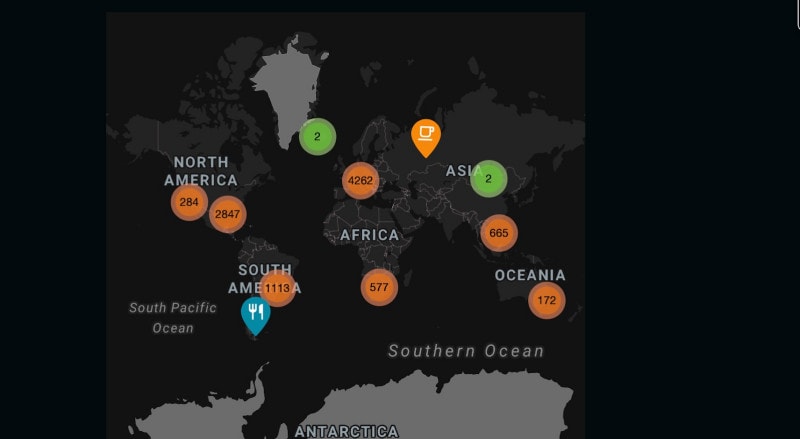Cryptocurrencies, particularly Bitcoin, witnessed a remarkable transformation in 2023. Data from BTC Map reveals a significant leap in in-person businesses embracing Bitcoin as a payment method.
Over the past year, the count of vendors accepting this digital currency has nearly tripled, reaching over 6,000 globally. This surge represents a 174% increase from the previous year (2022), where the number stood at approximately 2,200 merchants.
Bitcoin adoption in diverse geographical distribution
The adoption of Bitcoin as a payment method displays a diverse geographical distribution. Latin America emerges as a prominent region with a high concentration of Bitcoin-accepting vendors. However, the pattern varies across the globe. While Europe and the United States also show a significant number of merchants accepting Bitcoin, regions like East Asia lag in this trend, primarily due to regulatory environments. Notably, the Philippines leads in Southeast Asia, hosting the most merchants in the region. In contrast, countries such as China, India, and Russia have almost no vendors accepting Bitcoin, likely reflecting the regulatory policies in these countries.

The role of crowdsourcing in mapping Bitcoin adoption
The expansion of Bitcoin’s merchant network can be partly attributed to the increasing involvement of users in crowdsourcing efforts. BTC Map leverages open-source mapping data from OpenStreetMap, allowing businesses and users to tag locations where Bitcoin payments are accepted. This participatory approach has likely contributed to a more comprehensive and up-to-date representation of Bitcoin’s presence in the commercial sphere.
The increase in businesses accepting Bitcoin underscores the growing mainstream acceptance of cryptocurrencies. However, this trend also highlights the inherent volatility and risks of using digital currencies for everyday transactions. For instance, bitcoin used to buy a $10 coffee at the beginning of 2023, would be worth over $30 right now.
The fluctuating value of Bitcoin poses challenges for both consumers and businesses, emphasizing the need for a cautious approach in its utilization for real-world transactions.
Overall, the data from BTC Map highlights a significant growth in the adoption of Bitcoin among in-person merchants globally, with notable variations across different regions. This trend reflects the worldwide acceptance of cryptocurrencies in the commercial sector, marking an important phase in the journey of digital currencies towards mainstream usage.





